Tenses In English best for beginner
Hearing this word maybe some friends feel 'goose bumps' or 'cheerful', because what is imagined in the mind is boring formulas that are very difficult to understand and understand. friends who feel this way because they have not felt the ease of learning tenses as well as have not felt the enormity of the benefits of learning tenses for conversations in English.
In language, Tenses means time. So, tenses are forms of verbs that indicate the occurrence of an activity/activity carried out by people, objects, or other objects. As we all know that the tenses will always be in each sentence in English. However, the tenses will also change according to the time and also the nature of the event.
Based on the time of the incident, tenses in English can be divided into 4 main parts, namely:
Present Tense : Current / current time
Past Tense : Past
Future Tense : Future time
Past Future Tense: A time that will happen in the past
Whereas, if viewed based on the nature of the event, the tenses we know can be divided into 4 parts, which consist of:
Simple : Activities that are not in the process
Continuous : Activities that are still or in process
Perfect : Activities that have been completed
Perfect Continuous : Activities that have started and are going on
at a certain time
In learning English, it is certain that tenses are absolutely necessary and become an 'obligation' that must be mastered. These tenses will later support and support friends all in mastering English. Then how to quickly master the 16 tenses in English?
Based on admin experience and from several books that have been read, then to memorize, be proficient, and have proper tenses, friends must go through several stages of the process. So it's not necessarily proficient right away. Everything needs a process! Enjoy it! The stages include the following:
- Memorize and understand about verbs or verbs in English, both regular (regular verbs) and irregular verbs (irregular verbs) to the maximum.
- to understand the time of an event (time) which is divided into 4 types.
- Then understand the nature of the event (event) which is also divided into 4 parts.
- memorizing and practicing a combination of the time den events that have been studied earlier. Remember, PRACTICE! Practice makes perfect!
- According to Douglas Brown, an expert/expert in the language (one of them: English), once said that if we want to succeed in learning a language, especially English, then we must have 3 basic principles to do. What are some of these principles?
Physical commitment: friends want to master English? So friends must be physically committed. Physical commitment here for example by setting aside time to study at least 20 minutes every day. One more thing to remind us "that there is no day without studying!"
Then how can the above be applied in the process of learning 16 tenses in English? First of all, keep your friend's spirit of learning. For example, in a way that admin often does when they want to learn. Inhale and exhale alternately 3 times. Smile also 3x, each 1x shortly after exhaling, at the same time "suggest" into the mind of a friend that learning tense in English is very pleasant. After relaxing, then combine the time and event mentioned above so that it becomes 16 different tenses.
See the following table for the process of combining 16 tenses in English:
1. Present tense
2. Present perfect
3. Present continuous
4. Present perfect continuous
5. Past tense
6. Past perfect
7. Past continuous
8. Past perfect continuous
9. Future tense
10. Future perfect
11. Future continuous
12. Future perfect continuous
13. Past Future tense
14. Past Future perfect
15. Past Future continuous
16. Past Future perfect continuous
Summarize of 16 tenses
For more about present tense please download the book Here
For more about past tense please download the book Here
For more about future tense please download the book Here
For more grammar English book download the book Here
This is an article about the tenses in English ,, we hope can help you and many people.


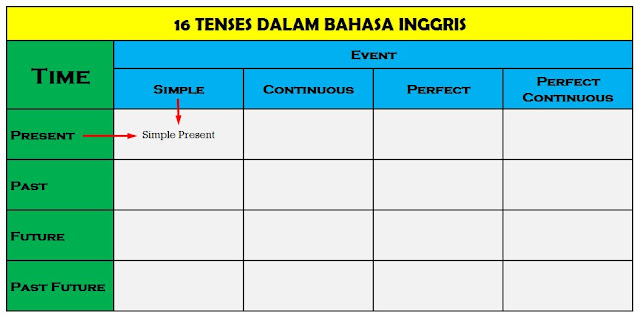

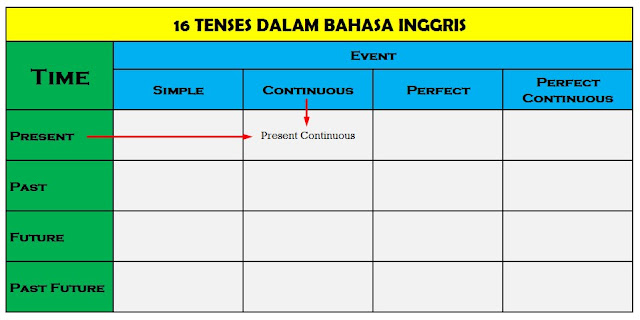
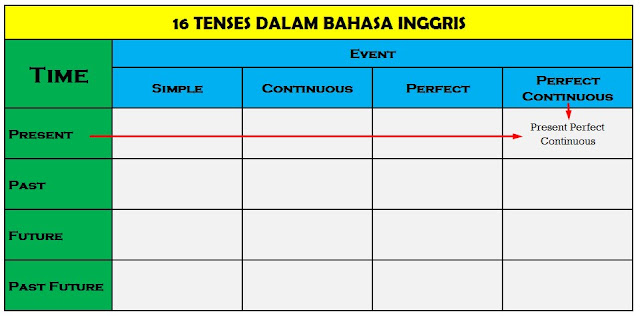

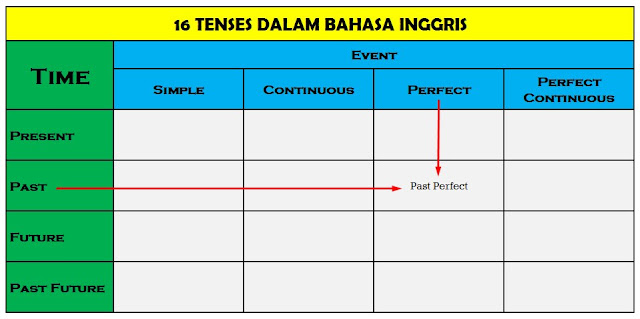
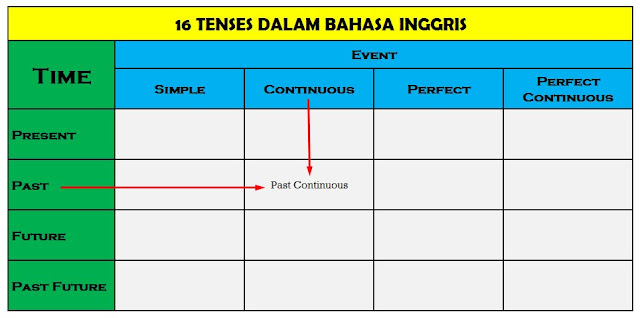
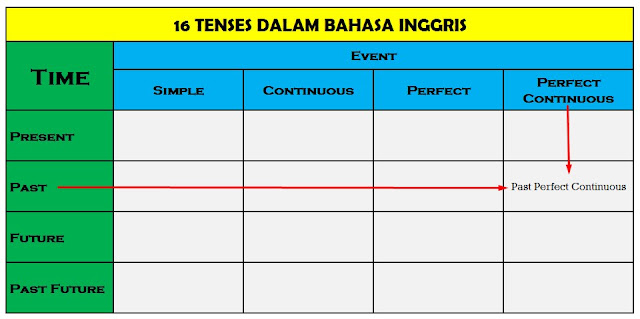
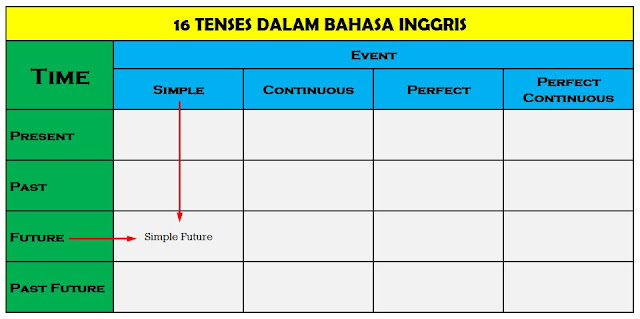
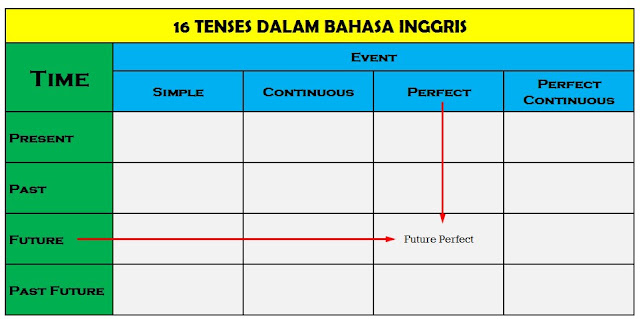
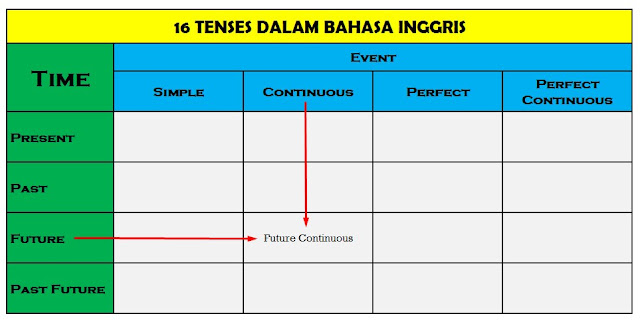

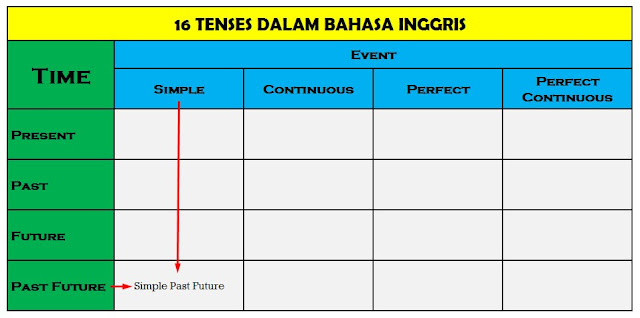
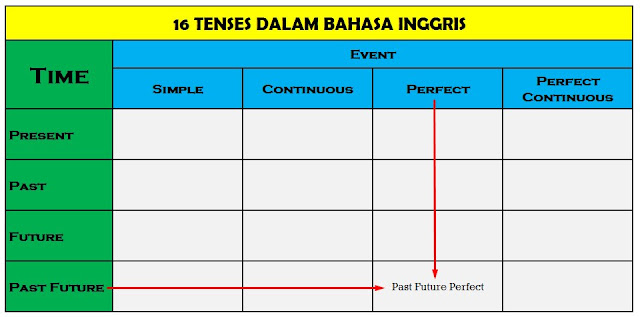
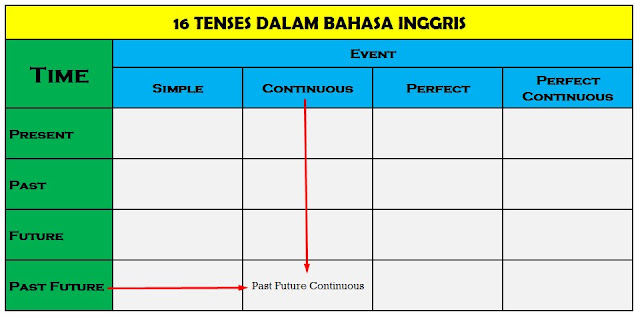

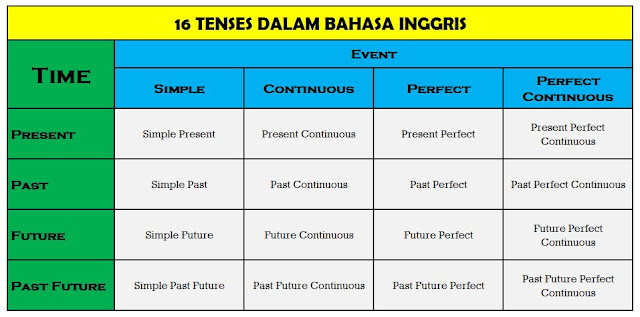
0 Response to "Tenses In English best for beginner"
Post a Comment